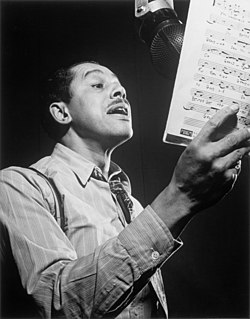Portal:Jazz/Selected picture/Archive
Appearance
This page displays all the images which appear in the "selected image" section of the Jazz portal. Instructions on how to add new articles to this list are here.

image credit: Stoned59
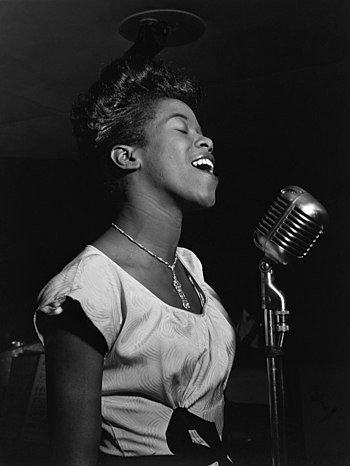
image credit: Username

Reinaldo Melián, trumpeter of Chucho Valdés & The Afro-Cuban Messengers, at a concert in Teatro Circo Price, Madrid, Spain.
image credit: Username

image credit: William P. Gottlieb

image credit: Library of Congress

image credit: Tsui

image credit: Tsui

image credit: William P. Gottlieb

image credit: William P. Gottlieb

image credit: Allan warren
image credit: public domain

image credit: Tom Palumbo


image credit: Dutch National Archives, The Hague, Fotocollectie Algemeen Nederlands Persbureau (ANEFO), 1945-1989

1920s jazz ensemble
image credit: Robert Runyon

image credit: Eric Delmar

Handwritten sheet music for John Coltrane's religious suite A Love Supreme

After You've Gone

Hugues Panassié and Tiny Grimes, New York, N.Y., between 1946 and 1948


52nd Street, New York City, 1948





Buddy Childers and Stan Kenton, ca 1947-1948


Charlie Parker, Tommy Potter, Miles Davis, Duke Jordan and Max Roach



Front door of house of Nick LaRocca, Uptown New Orleans, with notes that start his number "Tiger Rag" in the door screens




Dixieland band, Alaska Yukon Pacific Exposition, 1909.



Machito and his sister Graciella Grillo

Drawing in Two Colors, aka Interpretation of Harlem Jazz I, Winold Reiss



Oakland, California. Hot Jazz Recreation. Swing enthusiasts crowd against the band stand at an appearance of the Benny Goodman Band in a local dance hall. One of the boys in the foreground has a copy of "Hot Jazz" by Hughes Panassic (sic). (1942)






Benny Goodman band rehearsal session


Bud Spangler at KJAZ studio

Dave Brubeck (1954)

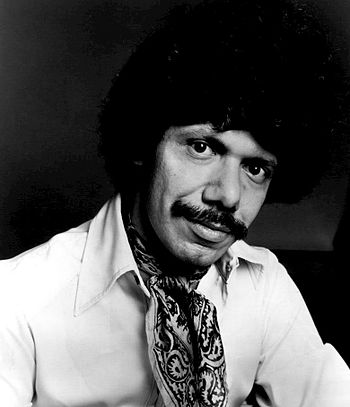
Chick Corea (1976)


"Earl `Father' (Fatha) Hines, a great swing musician, is shown with Pvt. Charles Carpenter
image credit: National Archives and Records Administration



Jaco Pastorius (1980)


Dave Lambert (1947)

Louis Jordan (1946)


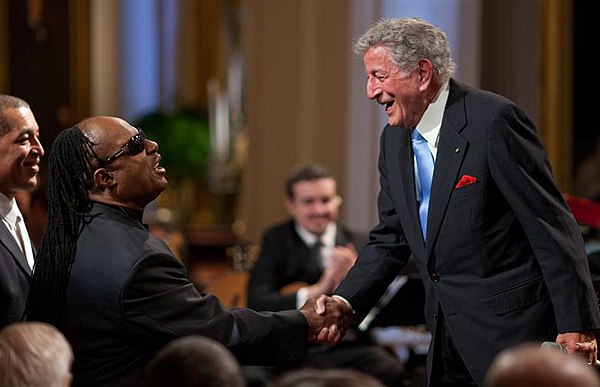

Billy Eckstine (1956)


Ella Fitzgerald (1947)

Ruby Keeler and Al Jolson (1934)


Jo Stafford with husband Paul Weston (1952)

Mel Tormé (1946-1948)

Sophie Tucker sheet music

Sophie Tucker sheet music

McCoy Tyner (1973)


Al Hirt and The Peanuts

Jelly Roll Morton (third from left), Ada "Bricktop" Smith (next), Los Angeles, California, at the Cadillac Club, c. 1917 or 1918


Carla Bley (1972)



Thelonious Monk (1947)
image credit: William P. Gottlieb


Jazz Band Marinho, Brazil, 1951

Jazz and early world music flutist Herbie Mann
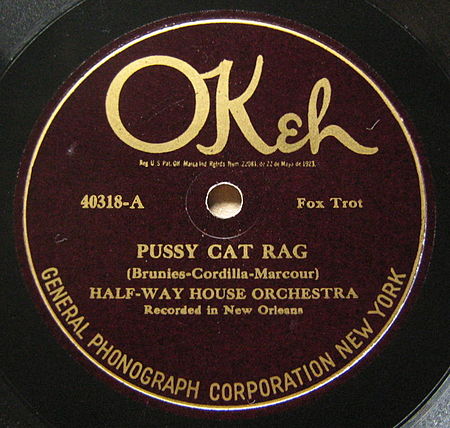
Pussy Cat Rag, Okeh Records


Photograph credit: William P. Gottlieb; restored by Adam Cuerden
Billy Strayhorn (November 29, 1915 – May 31, 1967) was an American jazz composer, pianist, lyricist, and arranger, best remembered for his long-time collaboration with bandleader and composer Duke Ellington that lasted nearly three decades. Though classical music was Strayhorn's first love, his ambition to become a classical composer went unrealized because of the harsh reality of a black man trying to make his way in the world of classical music, which at that time was almost completely white. He was introduced to the music of pianists like Art Tatum and Teddy Wilson at age 19, and the artistic influence of these musicians guided him into the realm of jazz, where he remained for the rest of his life. This photograph of Strayhorn was taken by William P. Gottlieb in the 1940s.
Cab Calloway (1907–94) was an American jazz singer and bandleader. He was strongly associated with the Cotton Club in Harlem, New York City, the nation's premier jazz venue at the time, where he was a regular performer. He was a master of energetic scat singing, which he learned from Louis Armstrong, and led one of most popular African American big bands from the start of the 1930s through the late 1940s. His most famous song was "Minnie the Moocher", which was used in a Betty Boop cartoon of the same name. In addition to music, Calloway was an actor, appearing both in films and in musical theatre.


